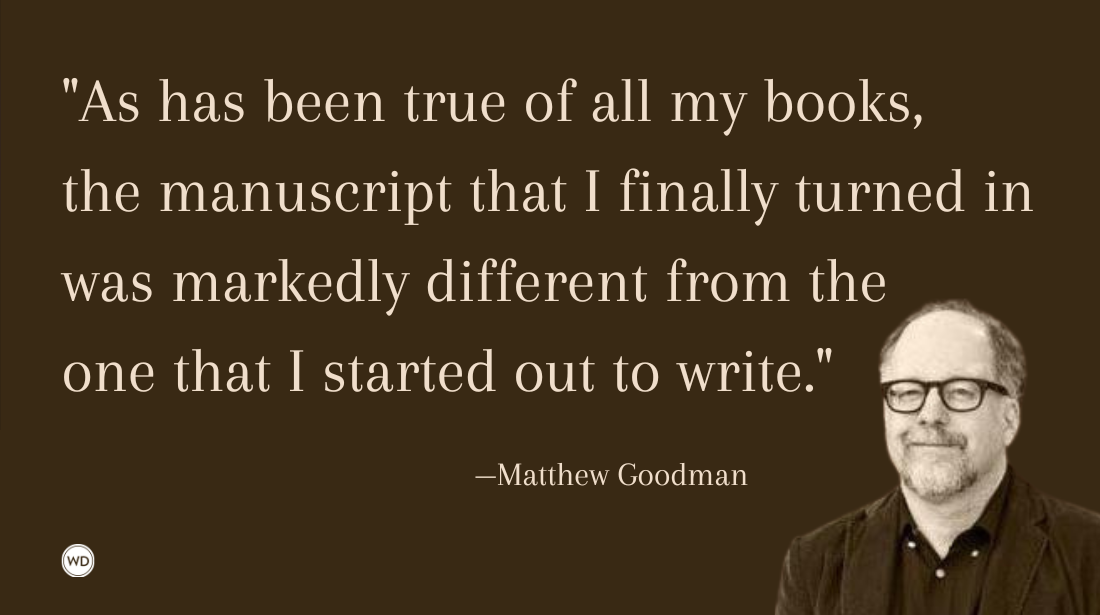Embracing the Impact of Personal Experiences on Your Writing
Danielle M. Wong believed that her story would be entirely free from her unwanted personal experiences and emotional obstacles—but learned a better approach along the way.
The story you want to write isn’t always the story you need to write. Before finishing my novel, I was under the impression that my characters could exist without unsolicited influence. In other words, I believed that my story would be entirely free from my unwanted personal experiences and emotional obstacles. I quickly learned that I was wrong—it’s almost always impossible to prevent trauma from trickling into your writing.
Danielle M. Wong: How My Father’s Death Influenced My Novel
I was halfway through writing my manuscript when I received a horrible phone call. My father was in the hospital—declining rapidly. Although he had a massive stroke years before, my dad was in great shape and stayed active. He was happy and healthy, save for a minor physical deficit and speech impairment leftover from the stroke. After receiving the shocking news, I hopped on a flight to California and never looked back.
He was awake when I first arrived at the hospital, and we caught up briefly while night nurses took his vitals. My dad knew about my dream of getting published, which was still a lofty goal at that point. I told him about my story, Swearing Off Stars, and the challenge of pushing through writer’s block. He was exhausted, but smiled and squeezed my hand as I spoke. I kissed him goodnight and said I’d be back first thing the next morning.
When I woke up the following day, I had no idea that things were about to get a whole lot worse. My father fell into a coma before I had a chance to see him again. Walking into his room that morning was unlike anything I had ever experienced. The air felt stale and dismal, like part of me already knew what was going to happen—the inevitable outcome that I wrote off as impossible.
My writing stalled for the time being, and I poured my focus into trying to help him heal. I traded my story notes for health journals and exchanged historical research for medical inquiry.
Posted up by my dad’s bedside for as long as the nurses let me, I read him bits and pieces of my story. I stopped this after a while though, because I didn’t have much energy to think about my would-be novel. My sister and I talked to him for hours, hoping with every fiber of our beings that he would suddenly wake up.
His prognosis became darker with each passing day. Frequent CT scans and MRIs showed a considerable amount of brain damage, resulting from a series of strokes and seizures. Still, my family held out hope for some sort of miracle.
After a long month of hoping and waiting, my dad passed away. I was overcome with sadness, and my manuscript was the last thing on my mind. While in the hospital, I wanted nothing to do with writing. It was something that I did when I was happy, when I felt free. But I eventually realized that I needed an outlet—I owed it to myself to finish the story.
Since I had yet to write the rest of my manuscript, my father’s death contributed to it in a unique way. I didn’t set out to craft a sad ending, but my dad’s decline seemed to demand it. Sitting in the hospital for so long—and essentially watching his body deteriorate—definitely influenced the last part of Swearing Off Stars.
My characters experience their fair share of trials and tribulations throughout the story, and face tragedy after small victories come to pass. Even when people have endured emotional trauma, faced hardships, and overcome obstacles in life, these challenges don’t make them immune to future misfortune. I’ve learned this all too well, and I think that it’s impossible to completely shield your writing from outside influences. So while his death didn’t entirely inspire Swearing Off Stars, it did influence the book’s ending.
My debut novel was published in October of 2017, just over one year after my father passed. I dedicated it to him—the person who always believed in me, and told me I could do anything I put my mind to.
Some people will think that the last part of my book is too sad, and others will love its poignancy—either reaction is valid in its own right. In my opinion, not all endings are happy. Some of the greatest and most powerful love stories end in heartbreak. These emotional outcomes are what make the love so special in the first place.
What’s going on in our personal lives has a way of slipping into our manuscripts, whether we want it to or not. Although this can be frustrating, we shouldn’t always feel the need to check our personal baggage at the door when writing. Our emotions, trains of thought, and past experiences are what make us dynamic writers.
My advice is to embrace that influence—don’t be afraid to let it in. Your life experience can impact your writing in a magnificent way, so welcome that possibility. You never know where it will lead you.
Danielle M. Wong is an emerging author living in San Francisco. Writer by day and reader by night, she loves creating and consuming all forms of media. A graduate of Northeastern University, her writing has been published on several websites, including The Huffington Post, USA Today, and Her Campus. Her debut novel, Swearing Off Stars, hit shelves on October 3, 2017.








